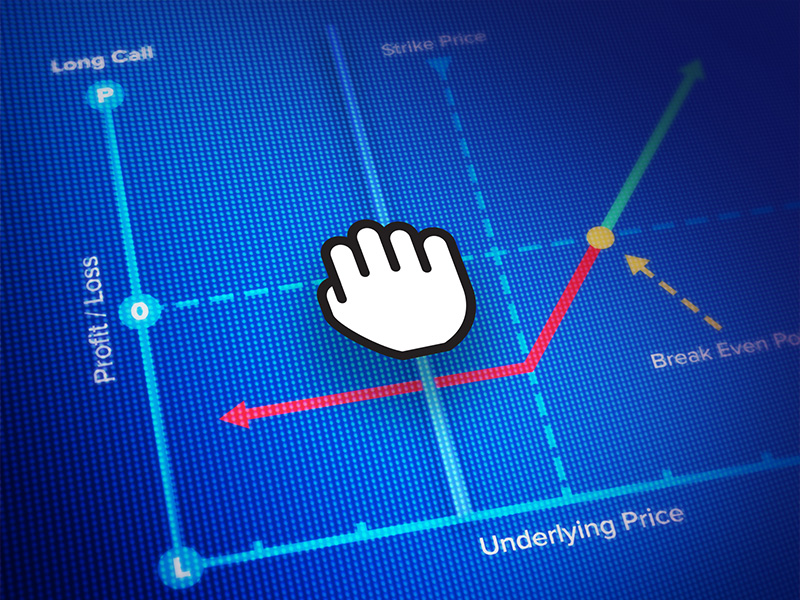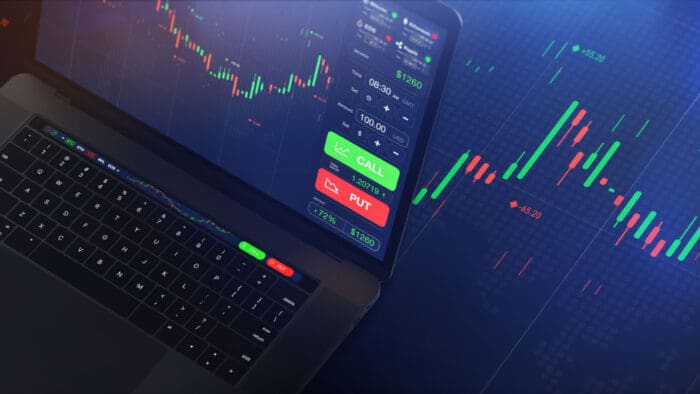It’s almost time to bid adieu to 2021, which means its time for an end-of-year review of your portfolio to identify losses and gains. Try to understand what went wrong and what went right—and why—and recalibrate for 2022.
If possible, take advantage of soured investments that might have long-term merit. If you bought a stock at a higher price, it might make sense from a tax perspective to take the loss against other gains and restart the investment from a lower price, a strategy known as “doubling up.”
Peloton Interactive (ticker: PTON), which rose to prominence during the pandemic and has since messily fallen from the market’s bullish summits into the ash heap of troubled companies, might just fit the bill.
Peloton, as most everyone knows, makes exercise bikes with video monitors that enable people to take classes with world-class instructors from their homes. The company enjoyed extraordinary success during the pandemic, only to be undone by manufacturing woes and ultimately by the Covid vaccine, which enabled gyms to reopen.
Yet Peloton continues to have a cultlike following. Instructors like Cody Rigsby have become celebrities. And the company has just begun a big trade-in program: People who buy a new bike can swap their old one for a $700 rebate and accessories.
Investors who bought Peloton at higher prices could double up on the stock to reset the cost basis and position for a potential recovery. The deadline to buy new stock to capture losses for this year is Nov. 30. After that date, there won’t be enough time to avoid the Internal Revenue Service’s wash-sale rule, which restricts loss deductions by investors who buy the same holding within 30 days before or after a sale.
Peloton investors can buy the same number of shares and hold them for 30 days. On the 31st day, the original tax lot of Peloton shares—the stock you bought at higher prices—can be sold. Anyone who does that should be able to claim a loss on their tax returns. Consult your tax adviser.
While doubling up with stock is the usual method, Michael Schwartz, Oppenheimer’s chief options strategist, prefers using call options to limit risk and expense. The mechanics of the trade are the same, but options are less expensive than stock.
Schwartz recently told clients who bought Peloton near its high price to double up with March $45 calls, which cost about $6.60 when the stock was $42.97. On the 31st day, the original tax lot could still be sold, and investors would own only the equivalent number of calls. (Each call represents 100 shares, so you would need 10 calls to cover 1,000 shares, for example.)
Again, the time frame is critical. Should the stock be sold before 30 days have expired, investors would violate the wash-sale rule and the IRS won’t allow the loss, Schwartz counseled.
During the past 52 weeks, Peloton has ranged from $43.13 to $171.09.
Some will wonder why Schwartz chose a March call, which expires in about 120 days. The answer is simple. Peloton is a “show me, don’t tell me” company. The management team has arguably lost the trust of investors as the stock has tumbled from all-time highs. Plus, the company recently said that it wouldn’t need to raise capital, only to subsequently say that it would sell more stock to raise capital.
Still, the Peloton cult is a valuable asset, even if it is hard to value by traditional metrics. The double-up trade expresses a view that the company’s management team will rise to the occasion and try to be as good as the instructors and the community. If not, well, the cost basis was reset, a tax advantage was realized, and the journey of risk and return begins anew.
—
Originally Posted on November 24, 2021 – Peloton Has Tumbled From Its Peak. What to Do With Your Beaten-Down Shares.
Updated November 28, 2021 / Original November 24, 2021
Steven M. Sears is the president and chief operating officer of Options Solutions, a specialized asset-management firm. Neither he nor the firm has a position in the options or underlying securities mentioned in this column.
Disclosure: Interactive Brokers Third Party
Information posted on IBKR Campus that is provided by third-parties does NOT constitute a recommendation that you should contract for the services of that third party. Third-party participants who contribute to IBKR Campus are independent of Interactive Brokers and Interactive Brokers does not make any representations or warranties concerning the services offered, their past or future performance, or the accuracy of the information provided by the third party. Past performance is no guarantee of future results.
This material is from Barron's and is being posted with its permission. The views expressed in this material are solely those of the author and/or Barron's and Interactive Brokers is not endorsing or recommending any investment or trading discussed in the material. This material is not and should not be construed as an offer to buy or sell any security. It should not be construed as research or investment advice or a recommendation to buy, sell or hold any security or commodity. This material does not and is not intended to take into account the particular financial conditions, investment objectives or requirements of individual customers. Before acting on this material, you should consider whether it is suitable for your particular circumstances and, as necessary, seek professional advice.
Disclosure: Tax-Related Items (Circular 230 Notice)
The information in this material is provided for informational purposes only and does not constitute tax advice and cannot be used by the recipient or any other taxpayer to avoid penalties under any federal, state, local or other tax statutes or regulations, or to resolve any tax issue.
Disclosure: Options Trading
Options involve risk and are not suitable for all investors. For information on the uses and risks of options, you can obtain a copy of the Options Clearing Corporation risk disclosure document titled Characteristics and Risks of Standardized Options by going to the following link ibkr.com/occ. Multiple leg strategies, including spreads, will incur multiple transaction costs.




















Join The Conversation
For specific platform feedback and suggestions, please submit it directly to our team using these instructions.
If you have an account-specific question or concern, please reach out to Client Services.
We encourage you to look through our FAQs before posting. Your question may already be covered!